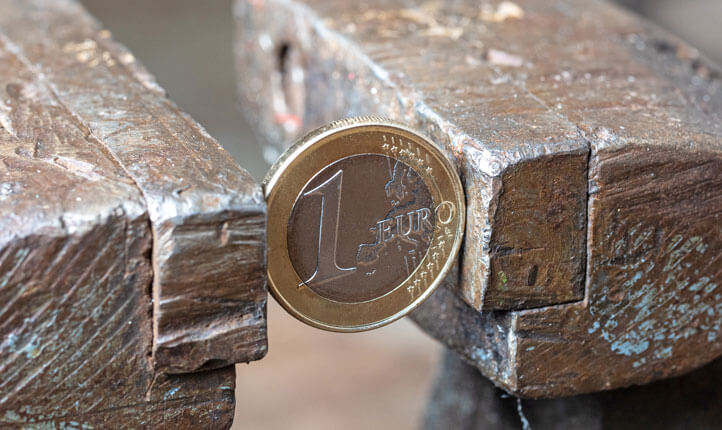By Lauren Buckner
The Euro’s recent lacklustre performance was dealt a further blow yesterday morning following disappointing releases from Germany. As the powerhouse economy within the bloc, there is a significant focus on German business performance and market sentiment in order to signal the fate of the EUs wider economic position.
The ZEW survey showed that business and investor confidence in Germany is now at it’s lowest level since the EU debt crisis where the likes of Greece, Portugal and Cyprus were unable to repay or refinance their government debt. Unlike the scenes of people queuing round the block to withdraw their life savings fearing a bank collapse, this crisis is being played out behind closed doors where people need to make decisions about what to spend their money on amid rising inflation. Crippled by their use of Russian gas and oil supplies Germany has already announced a 135% price rise in the cost of energy which will be contributing to growing concerns of businesses.
The Pound has failed to make significant gains against the euro despite economic concerns around the EU and the Russia/Ukraine conflict due to a similarly negative outlook here. Inflation figures released this morning beat expectations of 9.8pc showing that price rises are now over double digits at 10.1pc for July, for context this time last year inflation sat at a level of 3.2pc so the challenge for consumers can not be ignored. Wage growth as we already know was sitting at just 4.7pc between April and June meaning that ‘real pay’ is dropping at its fastest pace on record.
The outlook for the UK short term is also looking rather gloomy, With the price of gas/electric predicted to hit over £4,000 p/a in January for the average household, it seems inevitable that consumer spending will slow significantly further. Coupled with the Bank of England’s forecast that we will hit recession in the Autumn which will likely last over 12 months – against this backdrop it’s a wonder that GBP has been able to make any gains against the single currency in the last few months. Rather aptly for the Summer our euro buyers should consider ‘making hay while the sun shines.’
Of course the USD has been making gains (particularly against the euro – tracking towards parity) due to the uncertainty discussed however, their are concerns about economic stagnation across the Atlantic too. All eyes will focus on this evenings Fed minutes to analyse how bullish (or not) the Fed remain.
Global uncertainty and summer trading are coupling at the moment which is heightening uncertainty and traders nerves. We can expect currency markets to remain volatile through year end and possibly further as the seasons shift and the rising cost of energy really takes hold. Investors are nervous with the global financial crisis and a recent pandemic very much in their mind. If you have a requirement to exchange currencies in the coming months then you should take stock of your own risk appetite and how much of a move against you can (and are willing) to afford, please make contact with your Account Manager to discuss.



